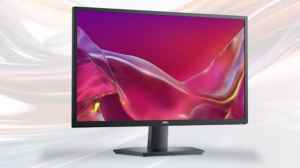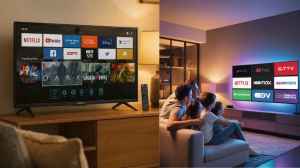Upgrading your home theatre experience requires better sound and in the case of soundbars, two giants rule that market: Samsung and Sony. There is a strong possibility of deciding on whether to buy a brand that suits your purpose, as this becomes a big player in your audio effect. These manufacturers have plenty of models of the soundbar, both the compact and the ones with higher quality, the premium soundbars with Dolby Atmos sound systems, citing promises of an immersive sound experience and advanced functions. To get a best home entertainment setup experience, it becomes essential to have an understanding about what truly differentiates Sony models from Samsung soundbars . We will be looking at their unique sound profiles, technological advances such as Q-symphony on Samsung or 360 Spatial Sound Mapping on Sony, and the level of setup difficulty. It is important any consumer needs to be familiar with these aspects to attain the ultimate audio home theater experience in movies, music and gaming applications so you make a better choice in the home theater system and upgrade your gadget zone.
Which Brand Offers More Value: Samsung or Sony Soundbars?
Samsung soundbars are usually more than worth it when it comes to people wanting bass-heavy loud audio performance and total compatibility with the Samsung TV via features such as Q-Symphony. They often provide good value in terms of features to price, and hence are a terrific value option to target consumers who want punchy surround sound when watching movies and wonderful, versatile audio capabilities in games. They have great mid-range products that prove to be very viable.
Although their purchase may be a little more expensive, the Sony soundbars usually have high-quality audio processing and offer better immersive audio properties and especially Dolby Atmos and other forms of modern spatial audio, such as 360 Spatial Sound Mapping. To audiophiles or people who value greater subtlety and large soundstage presentation with a very high level of detail that Sony tends to invest respectively, this tends to pay off in a more sophisticated home theater audio. In the end, value is relative: Samsung because it offers sound toughness at favourable values, Sony because it has high-end sound tuning.
What are the Key Differences Between Samsung and Sony Soundbars?
Here's a table comparing the key differences between Samsung and Sony soundbars, helping you decide which brand is worth it for your home entertainment setup:
|
Feature |
Samsung Soundbars |
Sony Soundbars |
|
Sound Profile |
Often characterized by a dynamic, vibrant sound with punchy bass and clear dialogue. |
Known for a more natural, balanced, and expansive audio quality. |
|
Unique Audio Technologies |
- Q-Symphony: Seamlessly integrates soundbar with compatible Samsung TV speakers for an enlarged soundstage. - SpaceFit Sound: Optimizes audio based on room acoustics (on some models). |
- 360 Spatial Sound Mapping: Creates multiple phantom speakers for a truly enveloping surround sound experience. - Sound Field Optimization: Auto-calibrates sound to your room layout. |
|
Integration |
Best synergy with Samsung TVs for Q-Symphony and unified control. |
Excellent integration with Sony BRAVIA TVs for Acoustic Centre Sync. |
|
Dolby Atmos / DTS:X |
Offers robust Dolby Atmos soundbars with up-firing speakers for height effects. |
Provides highly immersive Dolby Atmos performance, often excelling in creating a convincing overhead and expansive sound field. |
|
Price |
Often seen as offering a strong feature-to-price ratio, making premium audio more accessible. |
Can be a higher investment but often delivers a more refined, detailed, and truly cinematic audio experience for audiophiles. |
|
Design Aesthetics |
Typically sleek, minimalist designs, often matching Samsung TV aesthetics. |
Ranges from compact bars to larger, more robust designs, often with a premium, understated look. |



